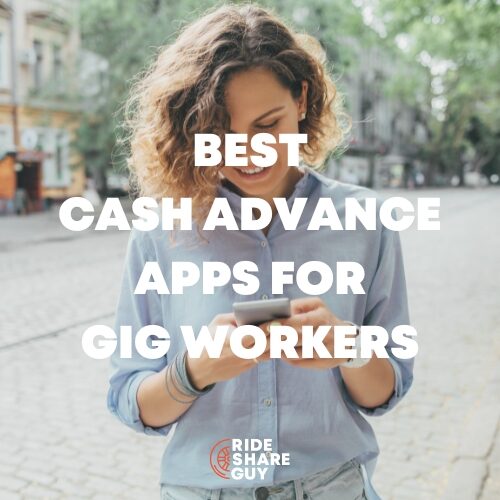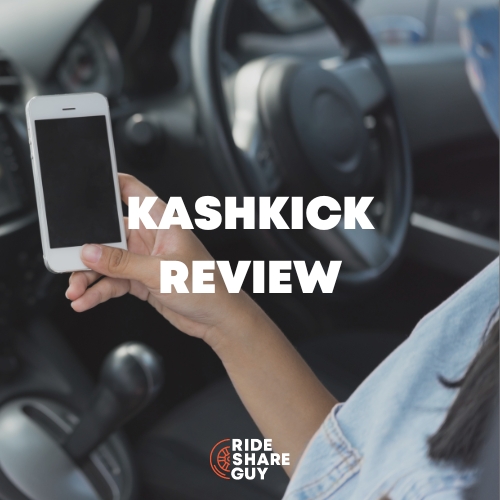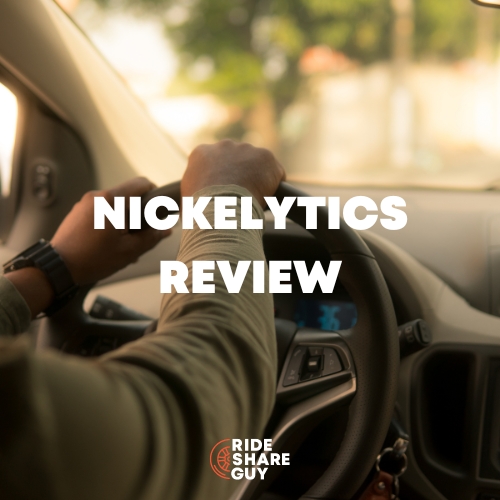As rideshare drivers, our job is pretty straightforward: drive, earn money, go home. But what if driving for Uber or Lyft also meant you were improving your own bottom line in the long term – via stocks? By turning drivers into (somewhat) owners of Uber/Lyft, would that incentivize drivers more? Senior RSG contributor Christian Perea explores the possibilities of Uber/Lyft offering drivers stock.
On October 11th, Uber sent a letter to the Securities and Exchange Commission arguing that drivers should be allowed to receive Uber stock the same way its employees do under an exemption to SEC rule 701(e). This letter was obtained by Axios and sparked some intense interest among drivers eager to receive some compensation in the company they helped build to a speculated $120 billion valuation.
Before we get excited as drivers, we should consider how Uber could divvy up a meaningful amount of shares for its 7.5 million drivers without diluting the positions of existing shareholders, all of whom want to protect their gains.

What Would Be The Best Case Scenario For Drivers?
The top 10 percent of US households by wealth currently own 84% of stocks, and half of US households hold no stock whatsoever (either directly, or indirectly via mutual funds or pensions). I’m going to take a wild guess and say that most Uber drivers fall on the 90% side of household wealth (unless we’re bored or trying to curry favor for an Uber IPO).
Imagine this becomes something that paves the way toward a lot of working class people owning stock of any kind for the first time. Even better, imagine other companies like Lyft start offering their own stock plans in order to compete for labor, and the result is that drivers can invest their time in the company they believe they can grow the best with.
When I started driving in 2014, Uber was valued at a meager $3.7 billion and Lyft was valued at $700 million. How much money would I have had I received shares over my 7000 rides?
[The Answer: More than I have now]
Giving stock to drivers would also make me laugh a little less when Uber refers to the gig economy as the “entrepreneurial economy” .

Increase In Loyalty And Driver Quality
Right now, there is no long term payoff to working in the gig-economy as a rideshare driver. You do your rides, get your cash and go home. Although Uber has recently launched Uber Pro to partially address that, the best strategy is still to pursue the short term promotions and headwinds of whichever platform is paying the most To-day.
However, there is a lot to gain by winning over the most experienced drivers. Uber’s own study showed that 68% of drivers quit within 6 months (that’s hella expensive), but it also showed that drivers with more experience drove more efficiently, slower, safer, all while also earning a little more money:

Related: Uber’s Gender Wage Gap Study Reveals A Lot About Driving For Uber
Gaining and retaining drivers is more important than ever because as the US approaches full-employment, companies like Uber and Lyft now face market pressures that force them to rely less on part-time and unemployed people between jobs. This could result in a smaller driver pool that increasingly skews toward full-time drivers that rideshare and tech companies compete for.
Giving Driver’s Stock in Early Stage Startups is Risky
It’s probably not smart to stake your entire retirement portfolio solely on early stage, high-risk, 90% failure rate, “Uber of X” companies. You only have to look back a few years to Juno to see what happens if things go sour in a scheme to reward rideshare drivers with equity.
Drivers at Juno received RSUs (Restricted Stock Units) based on the number of rides they gave and were only eligible if they drove on the app for 120 hours a month (full-time). The RSUs could be exchanged for cash in event of an IPO or a sale. Many drivers drove exclusively for Juno to take advantage of this plan and In 2017, Juno decided to sell to Gett for $200 million.
Those Juno drivers received around $100 for their RSUs with the RSUs valued at around $0.03 per share. Yes there’s a lawsuit.
Related Reading: What Did We Learn From Gett’s Acquisition of Juno?
Keep in mind, what happened at Juno is actually a small victory. Most companies like this outright fail. Getting $100 is better than the company going out of business, but those drivers still staked a lot of their time hoping the shares might be worth more one day. In a world where gig-workers could work for companies passing out RSUs for loyalty, there would be a huge failure rate.
Uber Would Likely Reserve RSUs For Model Drivers
Juno only allowed drivers who spent 120 hours a month or more on their app to be eligible for the RSUs. Uber RSUs would likely come with more eligibility requirements, since it would be a powerful lever.
Earning Your Shares
Uber’s history indicates that they would want to reward drivers with RSUs using gamification that rewards drivers for “good” behavior. Think 90% Acceptance Rate, 4% Cancellation Rate, 4.85 ratings, requiring a certain number of hours per month in Driver Mode, etc. The good news to this is that drivers would now share in any value created from offering a better quality in service.
In fact, something like this would fit in really nicely with the way Uber is testing the gamification of Uber Pro. In order to be eligible for Uber Pro, drivers must maintain a 4.85 rating and 2% cancellation rate.
No Retroactive Shares
You might be excited at the idea of getting shares based on all those rides you have given over the years to build the company that commands their valuation. However, Uber has no incentive to do this other than to be generous. It would be cool though and I welcome them to prove me wrong 🙂
In fact, awarding shares before Uber’s very hyped IPO would be an effective way to get a lot of drivers on the road again very quickly. A saturation in drivers would decrease wait times and draw drivers from Lyft and other platforms over to Uber. This is especially true if the RSU program was lucrative and it were easy to attain shares.
Shares Might Reduce Earnings
If the share incentives become popular enough, there is a chance that Uber would lean toward offering RSUs in lieu of current cash bonuses, higher rate cards, and other short term cash bonuses. Further, companies with cash flow problems (all early stage startups) would also have an intense incentive to offer more stock instead of cash when experiencing trouble or on the cusp of failing.
However, this would pass on a lot of risk to drivers who may not fully understand that risk. Remember, most “Uber for x” companies eventually fail. Desperate founders wouldn’t be above rewarding drivers with 100% RSUs that will be worthless in a week.
What I Would Want To See
From a point of my own self-interest, I’d REALLY love to see some shares for all the rides I gave in the past that got these companies to where they are today, whether that be for Uber or Lyft. Sure would be nice. (It’s not gonna happen)
It would be cool to see all drivers get a share for every 100 rides they give. I also think that full-time drivers who are likely to be relying on such shares for retirement should get extra options or shares that allow them to save in a meaningful way. Imagine how great it would be to drive for Uber in the future while going to ASU for free and banking some RSU’s for retirement or as a financial base when you graduate. That’s a powerful idea.
But RSUs could also be highly risky and be used as a tool of heavy-handed gamification that reduces earnings in the long run. Distributing shares to drivers could be especially difficult for a ton of reasons, likely requiring existing shareholders at these companies to agree. I’m not sure that is possible.
One way or another, I think the drivers who’ve given 10,000+ rides and spent countless hours on the road over the last 8 years building these companies from hipster-bandit-cabs into the most valuable privately owned tech companies in world history deserve at least a taste of some unicorn’s blood.
Readers, what do you think the likelihood of Uber/Lyft offering Restricted Stock Units (RSUs) is? Do you think this option could be a model for companies in the future?
-Christian @ RSG




